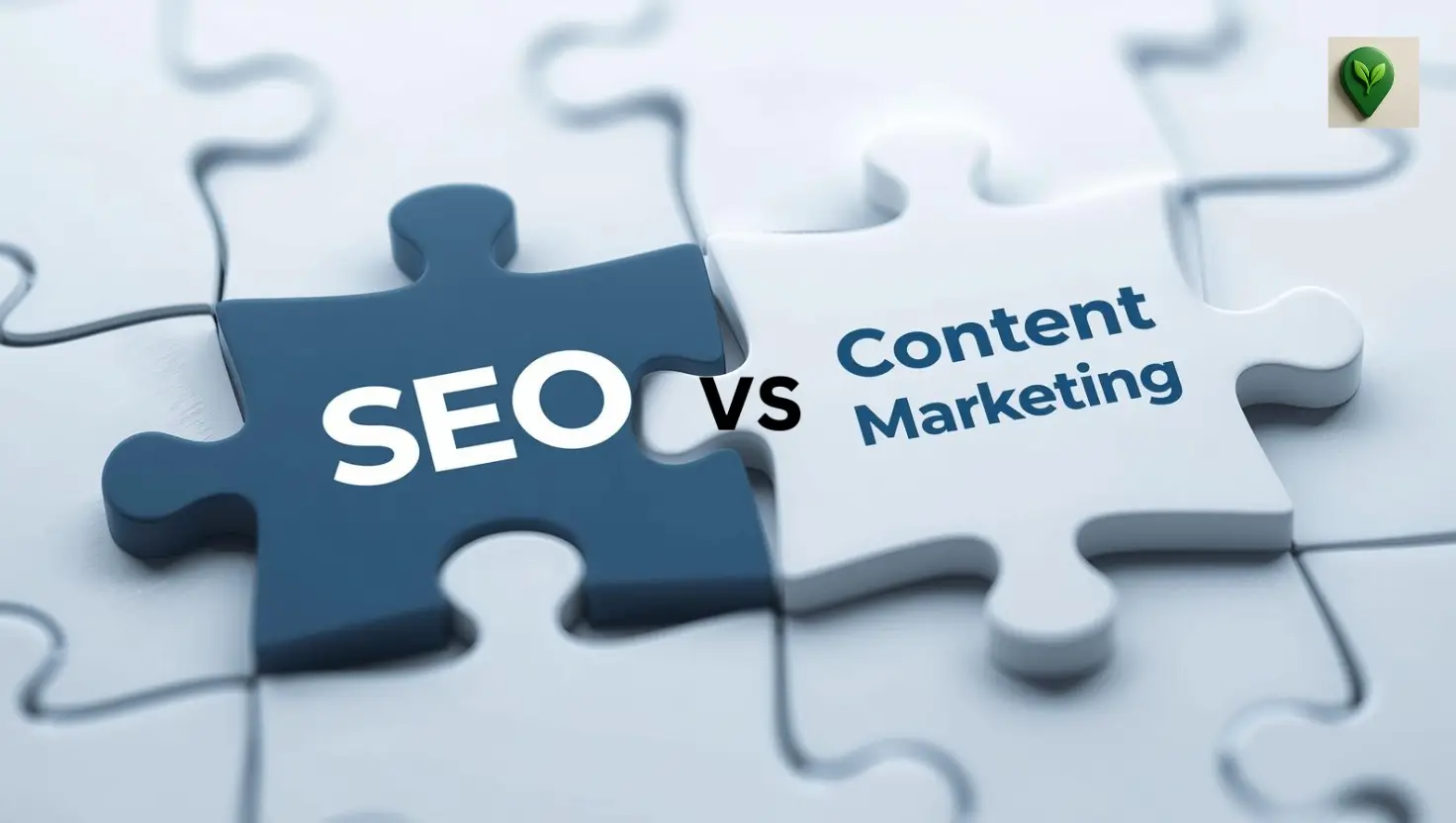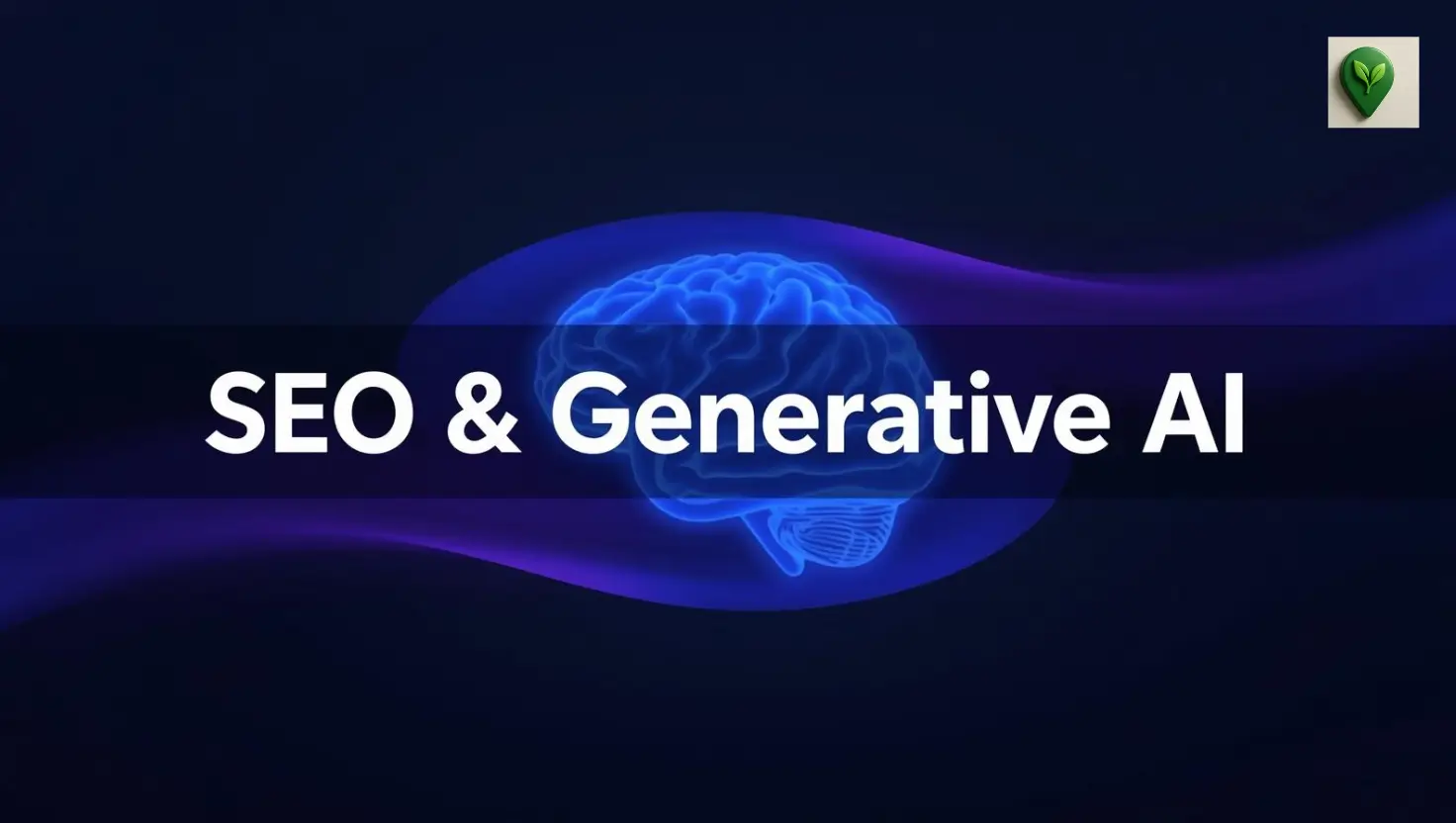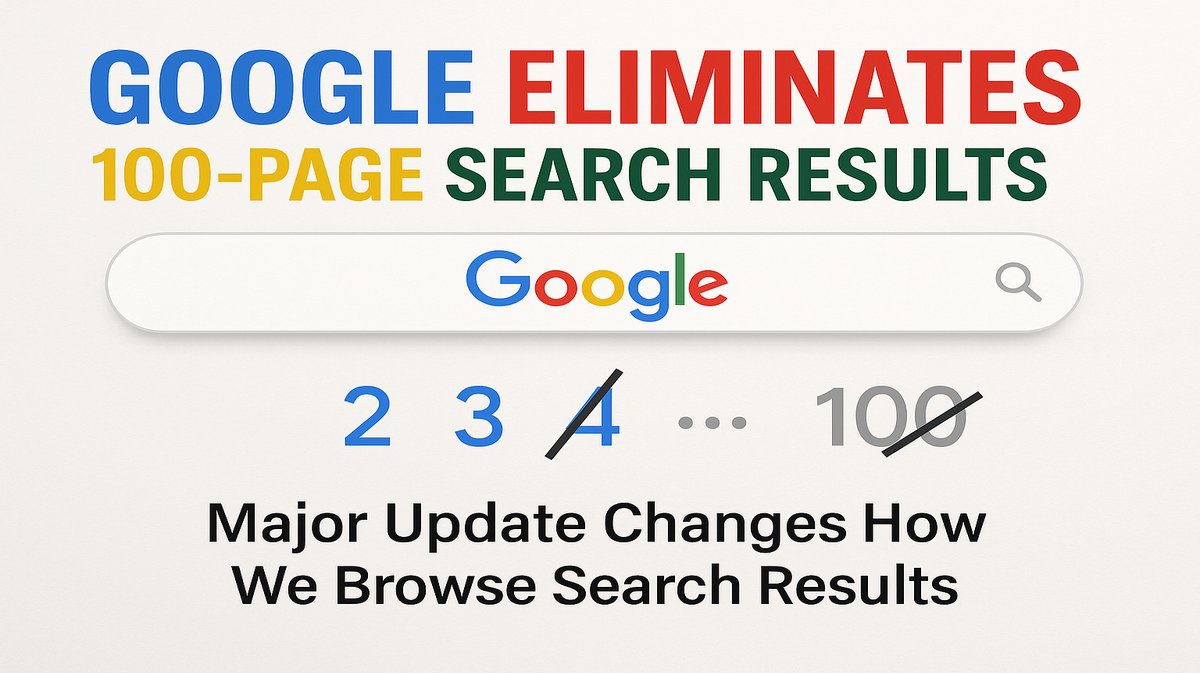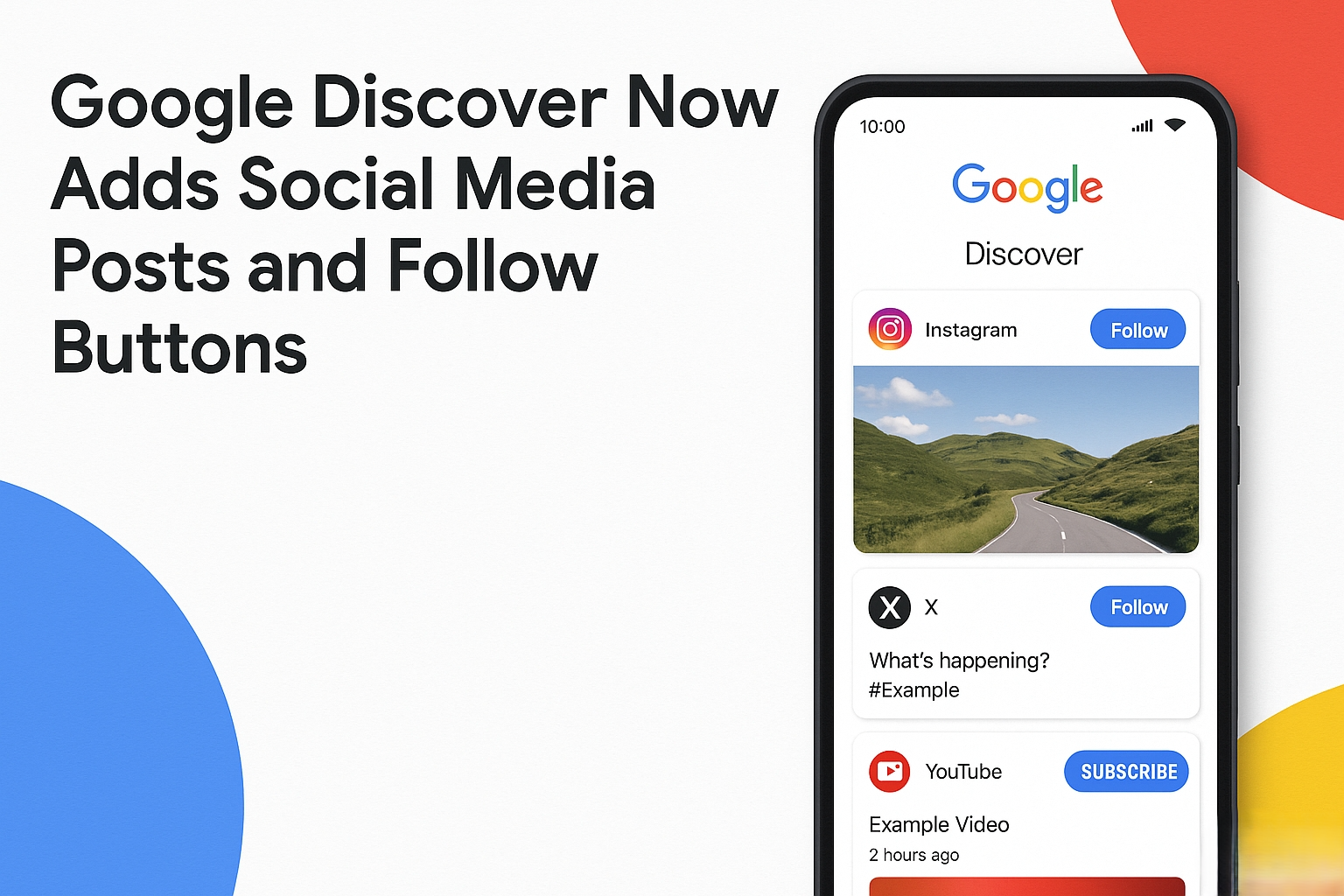You’ve probably heard the old saying, Don’t put all your eggs in one basket. That wisdom applies perfectly to today’s digital marketing world, especially when comparing SEO vs Content Marketing.
Many businesses often ask, Which is more effective, SEO or Content Marketing? The plain truth is, the debate of SEO vs Content Marketing isn’t about choosing one over the other, but about understanding how they work together to drive long-term growth.
SEO brings your audience to the door by improving visibility on search engines, while content marketing invites them inside with valuable, engaging content that builds trust.
As you read, I will enlighten you on what SEO and Content Marketing are, the impact of SEO on growth, when to use SEO and Content Marketing strategies, successful integrated SEO & Content Marketing Case Studies, and so on.
Table of Contents
ToggleSearch Engine Optimization
What is SEO?
Search Engine Optimization (SEO) is the practice of increasing the quantity and quality of traffic to your website through organic search engine results. It’s about making your website more visible to people who are searching for products or services you offer.
Search Engine Optimization (SEO) today goes beyond keywords and backlinks with the rise of AI-driven search. SEO now focuses on optimizing for AI algorithms, semantic search, and user intent, ensuring content is not only visible to Google but also easily understood and surfaced by AI tools like ChatGPT, Gemini, and so on.
Key Components of a Strong SEO Strategy
A robust SEO strategy involves several interconnected pillars. Ignoring any one of these can hinder overall performance. These components work together to signal search engines that your website is a valuable and authoritative source of information.
- Keyword Research: Identifying the words and phrases your target audience uses to search for information, products, or services. This is foundational for both on-page and off-page SEO efforts.
- On-Page SEO: Optimizing individual web pages to rank higher and earn more relevant traffic in search engines. This includes optimizing title tags, meta descriptions, headings, content, and internal links.
- Technical SEO: Ensuring your website meets the technical requirements of search engines with the goal of improved crawling, indexing, and overall user experience. This covers site speed, mobile-friendliness, site architecture, structured data, and so on, and so forth.
- Off-Page SEO: Actions taken outside of your website to impact your rankings within search engine results pages. The most common off-page SEO activity is link building, which involves getting other reputable websites to link back to yours.
The Impact of SEO on Growth
The direct impact or benefits of SEO on business growth is significant and measurable. It drives qualified traffic, enhances brand visibility, and builds credibility.
Challenges of SEO
- Constantly Changing Algorithms
One of the biggest hurdles in SEO is the changing nature of search engine algorithms. Google alone makes thousands of updates every year, from small tweaks to major updates.
These changes are designed to improve search quality, but they can also disrupt rankings overnight. What worked yesterday (e.g., keyword stuffing or backlink quantity) might not work today. This makes SEO a moving target, requiring constant learning, testing, and adaptation.
2. High Competition in Saturated Markets
SEO has grown in popularity, which means competition is fiercer than ever. In industries like fashion, tech, or digital services, thousands of websites are targeting the same keywords.
Large brands often dominate the top results because of their domain authority, resources, and backlinks, leaving smaller businesses struggling to break through. To succeed, companies must focus on long-tail keywords, niche targeting, and high-value content that builds trust and authority over time.
3. Time Investment Before Seeing Results
Unlike paid ads that deliver instant clicks, SEO is a long-term strategy. It often takes 3–6 months or more before websites start seeing significant improvements in organic rankings and traffic. This time investment can be frustrating for businesses looking for immediate results.
However, once the foundation is strong through optimized content, backlinks, and technical health, the rewards compound over time, often outperforming paid campaigns in cost-effectiveness and ROI. The challenge here is managing expectations and staying consistent, even when results aren’t immediate.
Content Marketing
What is Content Marketing?
Content marketing is a strategic marketing strategy focused on creating and distributing valuable, relevant, and consistent content to attract and retain a clearly defined audience and, ultimately, to drive profitable customer action. It’s about educating, entertaining, and engaging your audience.
What Defines Effective Content Marketing?
Effective content marketing goes beyond simply publishing blog posts. It involves understanding your audience’s needs, crafting compelling narratives, and delivering content through appropriate channels. This approach fosters trust and establishes your brand as an authority.
Content marketing statistics show that 90% of organizations had a content marketing strategy in 2025, indicating its widespread adoption and perceived value. Content marketing is a long-term strategy that builds relationships with your audience over time.
It’s not about immediate sales pitches, but rather about providing value that eventually leads to customer loyalty and conversions. This is why 71% of content marketers said content marketing grew in significance over the past year.
Challenges of Content Marketing
1. Content Saturation and Ensuring Originality
The internet is flooded with blogs, videos, podcasts, and social posts. With millions of pieces of content published daily, standing out is harder than ever.
One of the biggest challenges of content marketing is avoiding duplication and ensuring originality. Search engines and users alike value unique insights, not just recycled information. Brands must go beyond surface-level content by:
- Offering fresh perspectives.
- Backing claims with original research or case studies.
- Using authentic brand storytelling.
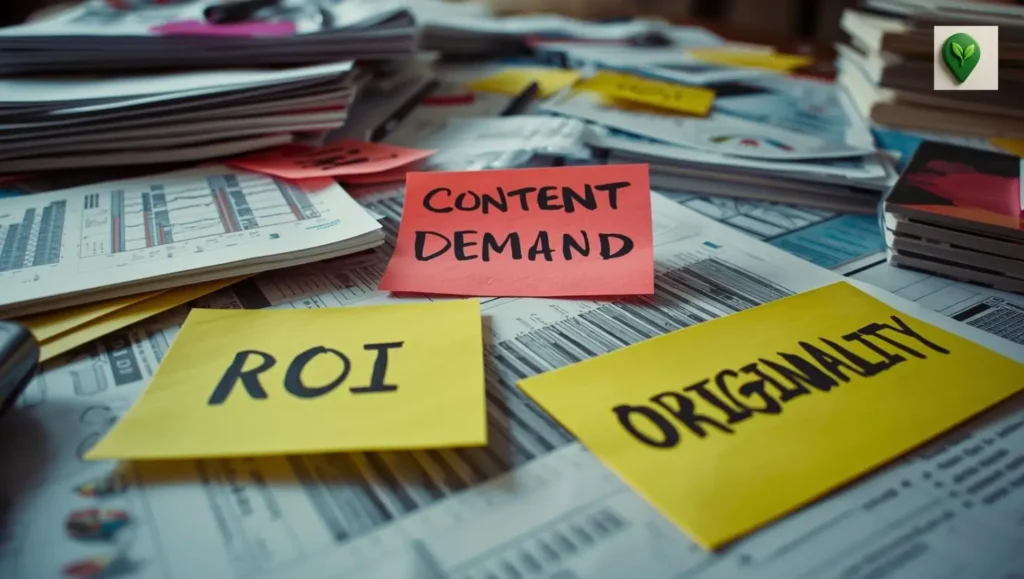
2. Measurement of ROI and Effectiveness
Unlike paid advertising, where results are immediate, measuring the ROI of content marketing is more complex.
How do you quantify the impact of a blog post or a YouTube video? Metrics like traffic, leads, engagement, and conversions all play a role, but aligning them with revenue can be tricky.
This makes proving effectiveness one of the biggest challenges of content marketing. To overcome this, businesses must:
- Set clear goals (brand awareness, leads, conversions).
- Use analytics tools like Google Analytics, HubSpot, or SEMrush.
- Track content performance across multiple touchpoints.
3. Keeping Up with Content Creation Demands
Content demand never stops. Audiences expect consistent, high-quality posts, whether that’s blogs, videos, newsletters, or social updates. This makes scalability and consistency major challenges of content marketing. Many businesses struggle to:
- Maintain a content calendar.
- • Balance quality with quantity.
- Allocate resources for research, writing, and design.
Brands that fail to keep up risk losing audience interest and visibility in search rankings. The solution lies in smart workflows, repurposing content across platforms, and even leveraging AI tools to ease the production load.
Importance of Combining Both Strategies
Both SEO and Content Marketing play crucial roles in digital marketing success.
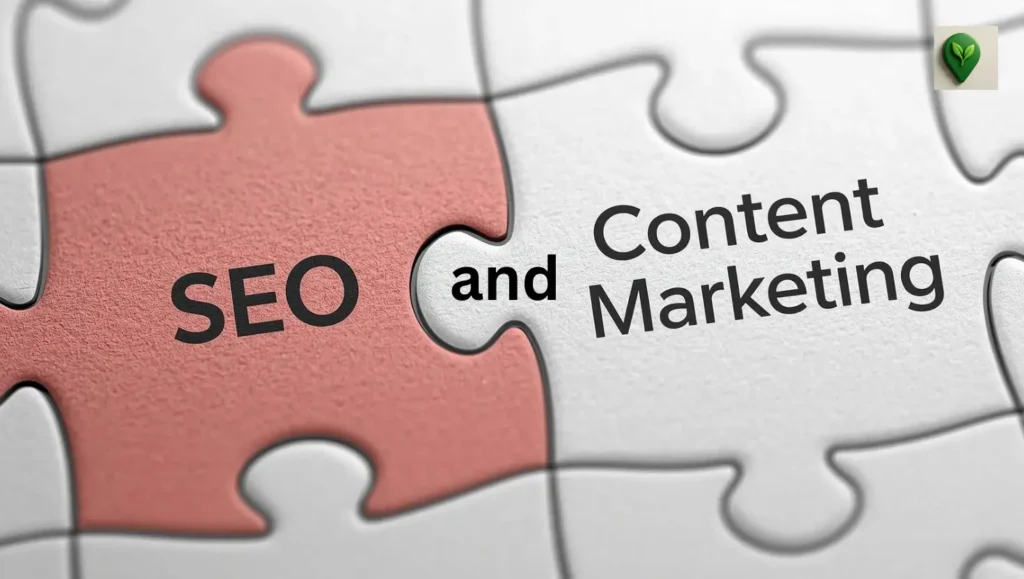
- SEO ensures discoverability: Without SEO, even the best content won’t be found by the right audience.
- Content Marketing builds engagement: Without valuable content, SEO rankings won’t sustain because users will quickly bounce.
- Together, they create synergy: SEO brings in traffic, while content marketing nurtures and converts that traffic into loyal customers.
For example:
- SEO helps you rank for the best headphones under $100.
- Content marketing provides an in-depth blog post, infographic, and case study that keep readers engaged.
Businesses that combine SEO and content marketing are more likely to achieve higher rankings, better engagement, and stronger conversion rates.
Interrelationship Between SEO and Content Marketing
As the saying goes, Teamwork Makes the Dream Work. That’s exactly how SEO and content marketing operate. SEO lays the foundation, and content gives it life. Without SEO, content stays hidden, and without content, SEO has nothing to build on.
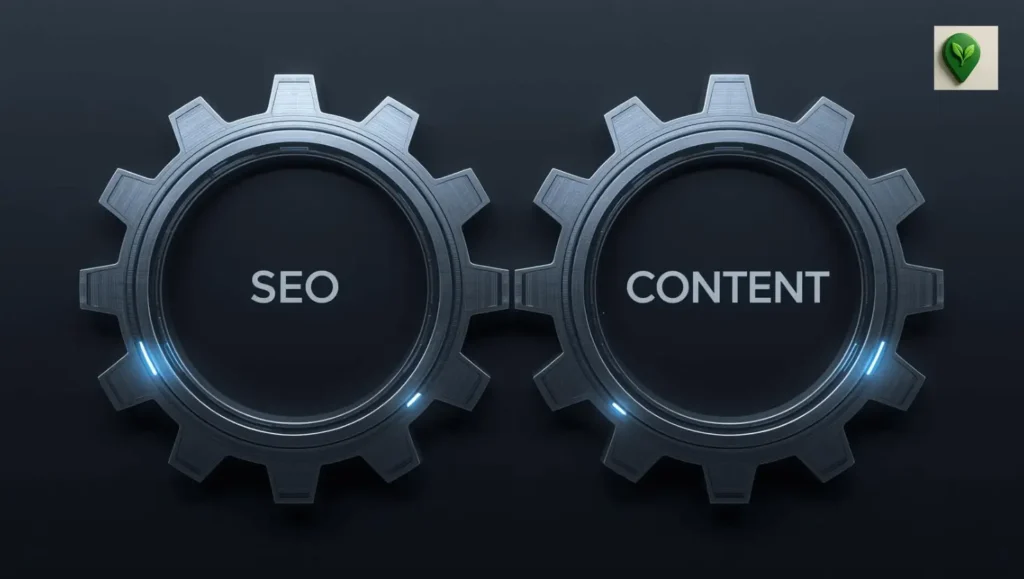
The interrelationship works like this:
- SEO defines demand → What are users searching for?
- Content fulfils demand → Provides the answers through blogs, videos, or guides.
- SEO amplifies content → Ensures content is visible to the right people at the right time.
This synergy is why top-ranking websites don’t choose between SEO and content marketing; they integrate both seamlessly.
When to Use SEO vs Content Marketing?
Many businesses make the mistake of treating SEO and content marketing as competing strategies, but in reality, they’re two sides of the same coin. While each has unique strengths, their true power lies in how they work together.
When SEO Takes the Lead
There are moments when SEO becomes the foundation. For instance, when you are:
- Launching a new website that needs to build visibility and rank on Google.
- Targeting specific keywords to capture users actively searching for solutions.
- Building long-term credibility in a niche with high-value evergreen content. In these cases, content without SEO optimization might remain invisible. SEO ensures that your great content is actually discoverable.
When Content Marketing Shines
At other times, content marketing takes center stage. For example:
- Telling your brand story to differentiate from competitors.
- Engaging your community through blogs, videos, and social media campaigns.
- Nurturing leads with valuable, educational resources like eBooks, podcasts, or webinars. Here, SEO alone cannot build trust; it needs engaging, well-crafted content to turn clicks into meaningful relationships.
Case Studies from Integrated Strategies
Theory is one thing, but seeing how integrated SEO and content marketing strategies deliver tangible results for real businesses is truly inspiring.
To maximize your digital growth, you need to think of SEO and content marketing not as separate departments, but as interdependent functions working towards a common goal. The examples below showcase the diverse applications and impressive outcomes of such an integrated approach. SEO Case Studies from an integrated process (SEO & Content Marketing intertwined).
| Integrated SEO & Content Marketing Case Studies | ||
| Business Name | Key Actions | Results |
| Edelweiss Bakery | On-page SEO, technical audits, site restructure, backlink building, and SEO blog creation. | Keyword research, site audit, on-page optimization, and new blog content |
| Learning with Experts | Keyword research, site audit, on-page optimization, and new blog content. | 59% rise in organic sessions; 94% revenue growth in 5 months. |
| CMA Exam Academy | Technical fixes, blog re-optimization, scalable content strategy with monthly SEO reporting | 125% revenue increase; 121% pageviews growth; 147% more users after 1 year. |
| BAYADERA (alcohol brand) | SEO and content integration for visibility and engagement | 195% growth in organic traffic; 187% increase in revenue. |
Conclusion
At the end of the day, it’s not about choosing between SEO vs Content Marketing but understanding how they work hand in hand to drive sustainable growth. SEO makes your content discoverable, while content marketing gives people a reason to stay, engage, and trust your brand.
If you’ve learned something valuable here, don’t stop. You can go further by checking out our other interesting blogs on topics like the June 2025 Google Update and How TikTok and Instagram Are Becoming Search Engines.

Ozoemena Victor helps tech brands grow organic traffic & search visibility 5x+ with SEO, quality content & AI-driven insights.
Technical SEO Consultant & Content Strategist/Writer.

